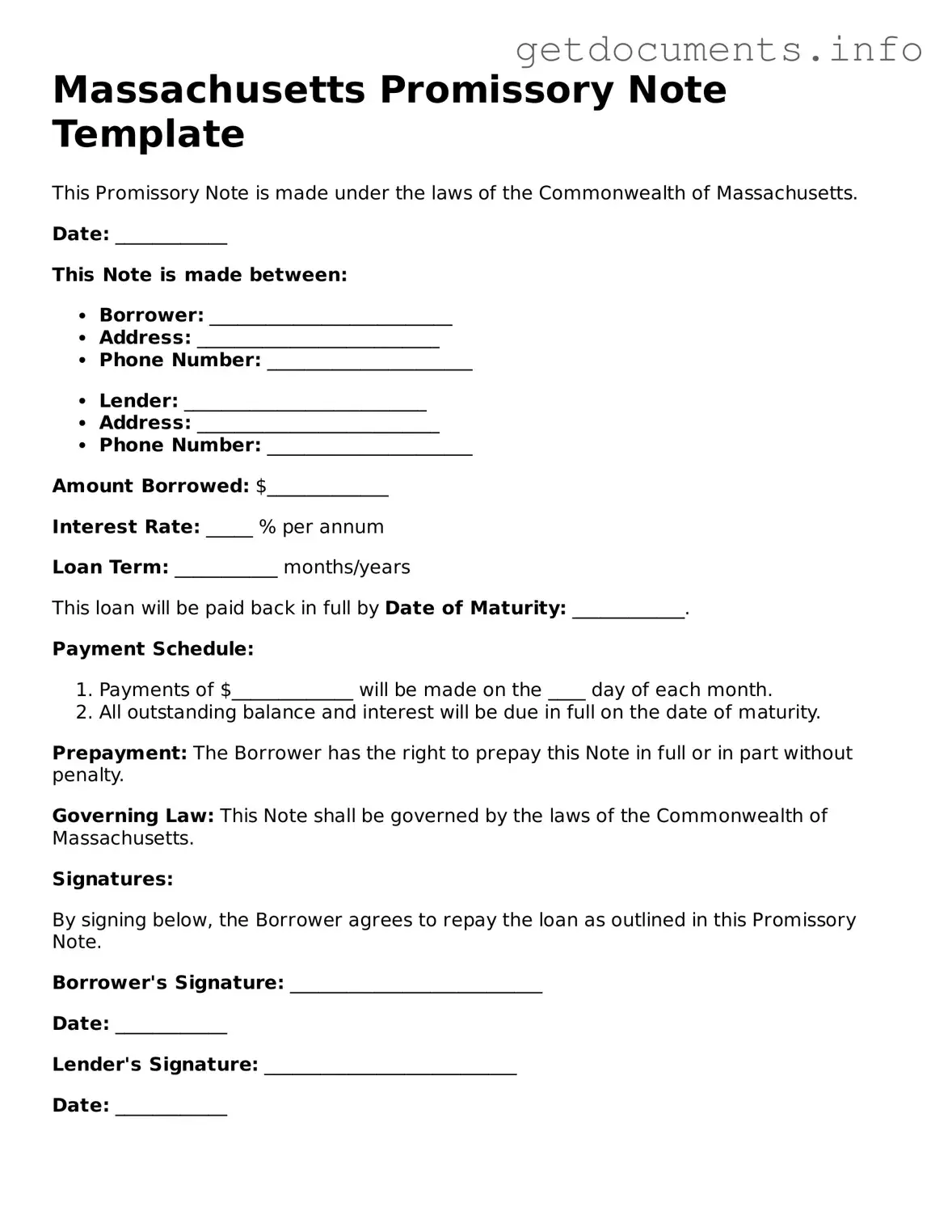Free Promissory Note Template for Massachusetts
A Massachusetts Promissory Note is a written promise to pay a specified amount of money to a designated person or entity at a future date. This document serves as a crucial tool in lending agreements, ensuring clarity and legal protection for both parties involved. Ready to create your own Promissory Note? Fill out the form by clicking the button below.
Access Promissory Note Editor

Free Promissory Note Template for Massachusetts
Access Promissory Note Editor
Got places to be? Complete the form fast
Fill out Promissory Note online and avoid printing or scanning.
Access Promissory Note Editor
or
⇩ PDF File
